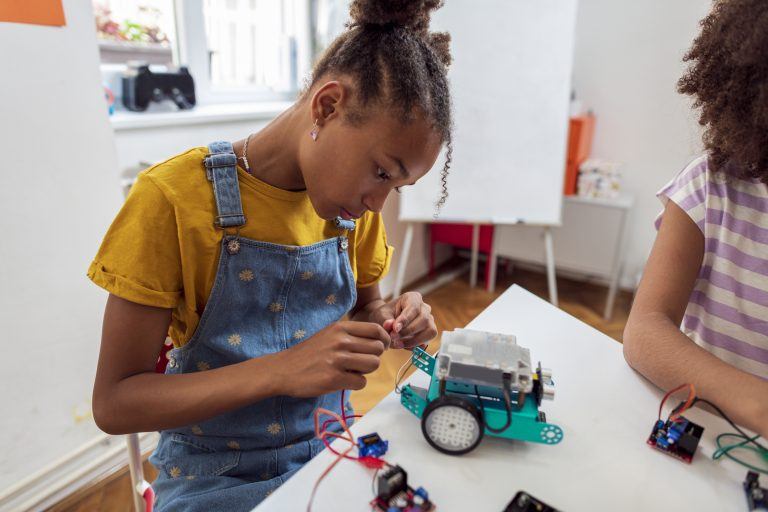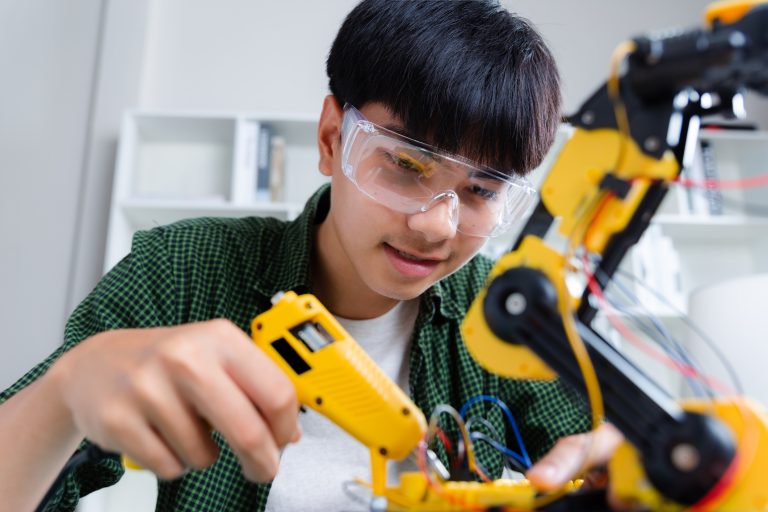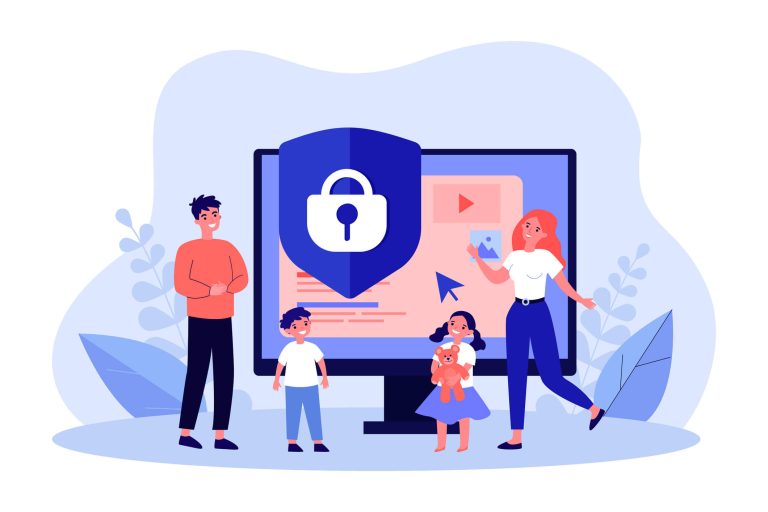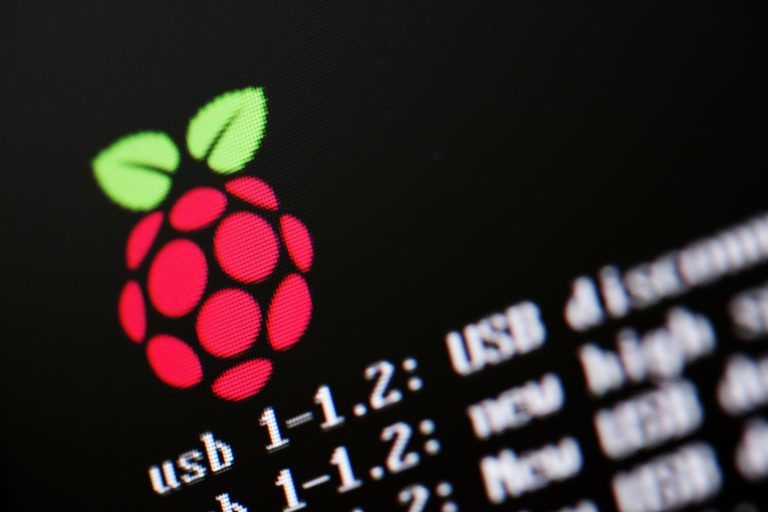Table of Contents
Best ways to teach kids computer coding
As per data from the Bureau of Labor Statistics, STEM job sectors are anticipated to expand at double the rate of the average 5% growth rate between 2021 and 2031. With the expansion of agentic AI, many experts believe that the demand for software development skills may increase beyond these figures. While this prediction may sound surprising, a world in which nearly every every business will managed by AI agents will require an unprecedented number of software engineers design the systems and manage the AI-controlled software systems that run it.
Teaching kids to code can provide them with valuable skills that will be in demand in the job market down the road. But even without considering the distant future, there are fundamental reasons why children should learn to code.
In today’s tech-driven world, computer coding is a crucial skill that opens doors to innovation, problem-solving, and countless career opportunities in the AI future.
As a parent, you can play a vital role in helping your kids master this valuable skill. Introducing your children to coding not only equips them with a competitive advantage but also fosters creativity, critical thinking, and a deep understanding of technology. Here, we’ll explore effective strategies to nurture your child’s coding abilities.

Start Early
It’s never too soon to begin. Introduce your kids to coding from a young age. There are various child-friendly programming languages and platforms like Scratch or Code.org that make coding enjoyable and accessible for children as young as five.
Recommendation from an instructor for programming courses for children:
“In my experience teaching programming courses for kids, I’ve found that children as young as five or six can start learning the fundamentals of programming. At this age, kids have a remarkable ability to grasp basic coding concepts through visual and interactive platforms like Scratch or Code.org. While they may not yet have the attention span for in-depth coding, early exposure to coding sets a strong foundation for logical thinking, problem-solving, and creativity. It’s like planting a seed that will gradually grow with time and practice. By starting early and introducing coding in a fun, playful manner, we can nurture a lifelong passion for technology and empower children to thrive in an increasingly digital world.”
Lead by Example
Kids learn best when they see their parents engaged in the same activities. Learn coding alongside your children, and let them see your passion for it. This shared interest will encourage them to stay committed and inspired.
A list of programming courses that adults can start taking:
There is a wide range of programming courses that adults can start taking to enhance their skills, learn new technologies, or transition into a career in software development or related fields. Here’s a list of programming courses for adults:
- Introduction to Programming: A fundamental course that covers the basics of coding, algorithms, and problem-solving. It’s often a prerequisite for more advanced courses.
- Web Development: Courses in web development cover HTML, CSS, JavaScript, and various web frameworks like React, Angular, or Vue.js.
- Python Programming: Python is a versatile and beginner-friendly language. Courses can range from basic Python to more specialized topics like data science and machine learning with Python.
- Java Programming: Java is widely used for building web applications and Android apps. Java courses teach the language and its applications.
- Mobile App Development: Learn to create mobile apps for iOS or Android using languages like Swift, and Kotlin, or frameworks like Flutter.
- Data Science: Explore courses on data analysis, data visualization, and machine learning using tools like Python and R.
- Full-Stack Development: These courses cover both frontend and backend development, providing a comprehensive understanding of web application development.
- DevOps: Learn about the principles and tools that facilitate collaboration between development and operations teams.
- Blockchain Development: Understand the technology behind cryptocurrencies and blockchain applications.
- Cybersecurity: Explore courses in ethical hacking, cybersecurity fundamentals, and network security.
- Game Development: Learn to create video games using Unity or Unreal Engine platforms.
- Cloud Computing: Get certified in cloud platforms like AWS, Azure, or Google Cloud to manage and deploy applications in the cloud.
- Database Management: Gain expertise in database systems, including SQL and NoSQL databases.
- Frontend Frameworks: Specialize in popular frontend frameworks like React, Angular, or Vue.js for building interactive web applications.
- Backend Development: Focus on server-side technologies and frameworks like Node.js, Ruby on Rails, or Django.
- Artificial Intelligence and Machine Learning: Explore courses that explore AI and machine learning concepts, libraries, and tools.
- Internet of Things (IoT): Learn to develop applications and solutions for IoT devices and networks.
- Programming Languages: Dive deep into specific programming languages like C++, C#, Ruby, or Go.
- Data Engineering: Courses on data pipeline management and ETL (Extract, Transform, Load) processes.
- Functional Programming: Study functional programming languages and paradigms like Haskell or Scala.
- Quantum Computing: Explore the exciting field of quantum computing and its programming languages.
- Natural Language Processing: Learn how to work with and analyze human language data, a crucial field in AI and linguistics.
These are just a few examples of programming courses for adults. The choice of course depends on your interests, career goals, and current skill level. Many online platforms, universities, and coding boot camps offer these courses, making it convenient to embark on your programming journey.
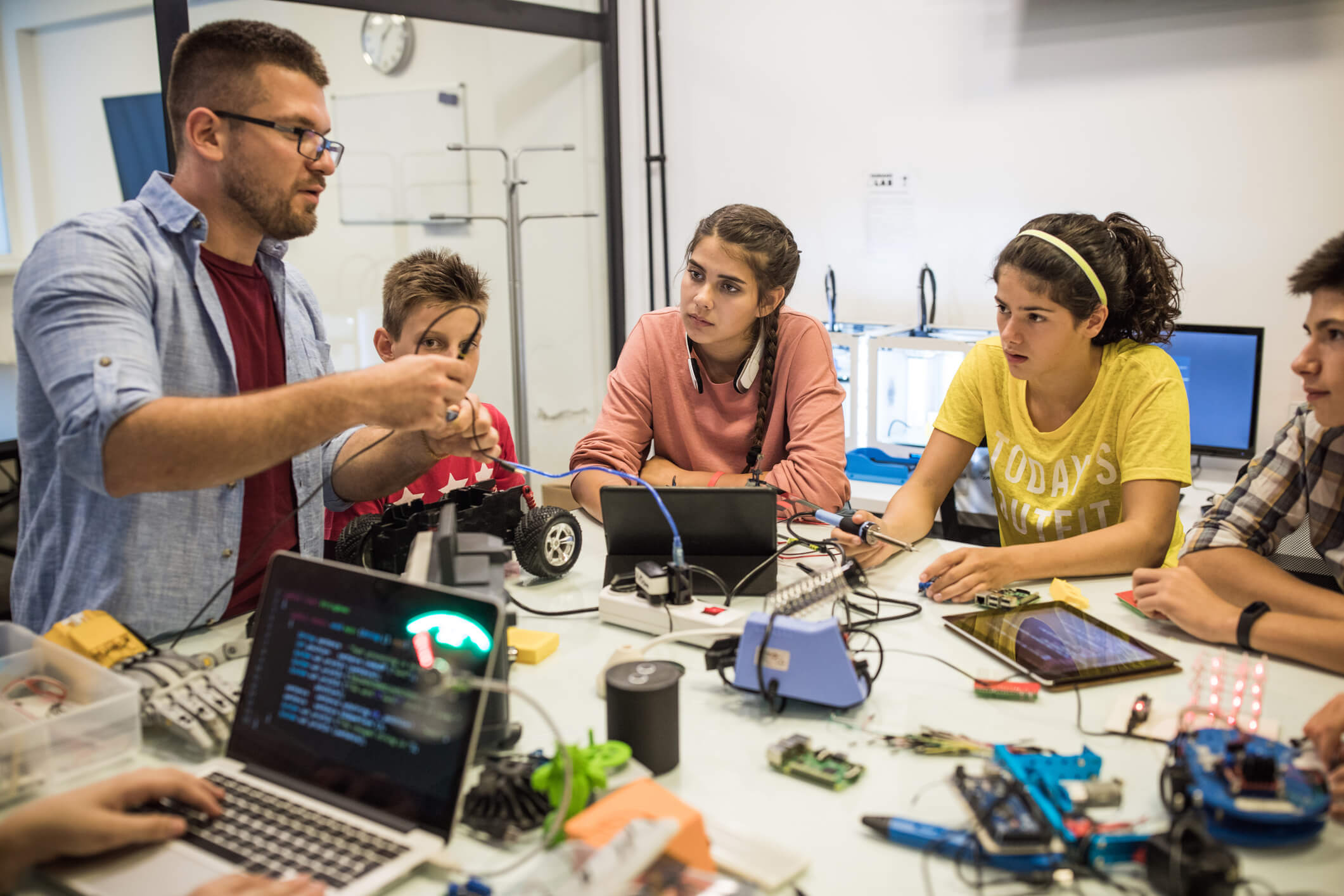
Enroll in Coding Classes
Many schools and online platforms offer coding classes tailored for kids. These structured programs provide a systematic approach to learning, giving your children a solid foundation in coding principles.
Useful article: Coding for children aged 6 – a comprehensive guide for parents
Encourage Problem-Solving
Coding is essentially about solving problems. Encourage your kids to tackle real-world issues with coding. For example, they can create a simple game or an app that addresses a problem they care about.
Explore Creative Projects
Coding isn’t just about logic; it’s also about creativity. Encourage your children to express their creativity through coding by building stories, animations, or digital art.
Provide a Coding Environment
Set up a dedicated workspace for your kids to code comfortably. Ensure they have access to a computer, software, and resources they need.
Expert tip:
“Creating an ideal workspace for a child learning coding is essential to foster a productive and engaging learning environment. Here are some expert tips on what should be in the workplace for a child who will be learning coding:
- Computer or Laptop: Ensure the child has access to a suitable computer or laptop with the necessary software and hardware for coding. A moderately powerful computer is usually sufficient for beginners.
- Internet Connection: A stable and reasonably fast internet connection is vital for accessing online coding resources, courses, and tutorials.
- Ergonomic Desk and Chair: Invest in an ergonomic desk and chair that provides comfort and support. Proper seating can reduce strain during long coding sessions.
- Second Monitor: If possible, having a second monitor can be incredibly helpful for multitasking, such as having the code on one screen and reference materials on the other.
- Coding Books and Materials: Stock the workspace with coding books, notebooks, and reference materials. Physical resources can be handy for offline learning and note-taking.
- Headphones: Noise-canceling headphones are valuable, as they help the child concentrate in a potentially noisy environment, especially if they’re sharing space with others.
- Quality Keyboard and Mouse: A good-quality keyboard and mouse can make typing and coding more comfortable and efficient.
- Whiteboard or Corkboard: These can be used for jotting down ideas, and notes, and visualizing coding concepts.
- Coding Software: Install the necessary coding software and development environments for the languages the child will be learning. For beginners, visual block-based editors like Scratch can be a great start.
- Coding Accessories: Consider adding programmable accessories like microcontrollers, robots, or Raspberry Pi for hands-on coding projects.
- Proper Lighting: Ensure there’s adequate and adjustable lighting to reduce eye strain and create a comfortable learning atmosphere.
- Organizational Tools: Keep the workspace organized with drawers or containers for storing cables, chargers, and other accessories.
- Inspiration: Decorate the workspace with inspirational posters or artwork related to coding and technology to stimulate curiosity and creativity.
- Parental Guidance: Encourage an open and supportive environment where parents or guardians are available to assist and answer questions when needed.
- Scheduled Breaks: Implement a schedule that includes regular breaks to prevent burnout and promote a healthy balance between coding and other activities.
- Security Measures: Ensure that the child’s computer and online activities are protected by security software and parental controls to create a safe learning environment.
- Feedback Mechanism: Establish a way for the child to seek feedback and guidance on their coding projects. This could be through regular check-ins with a mentor or parent.
Remember that the key to an effective coding workspace for a child is a balance between comfort, inspiration, and functionality. Adapting the workspace to the child’s specific needs and preferences can go a long way in making the learning experience enjoyable and productive.”

Teach Them to Research
Coding often involves solving problems that require research. Teach your kids how to search for solutions online, read documentation, and ask for help when needed.
Reward Achievements
Celebrate your child’s coding milestones. Whether it’s completing a challenging project or mastering a new programming concept, rewards can be a powerful motivator.
Promote Persistence
Coding can be frustrating, especially when things don’t work as expected. Teach your kids the importance of perseverance and that failure is a part of the learning process.
Connect with a Coding Community
Join local coding clubs or online communities where your child can interact with like-minded peers. These interactions can provide inspiration and valuable insights.
What is a coding community?
“A coding community is a vibrant and interconnected group of individuals passionate about coding, software development, and all things tech-related. These communities, whether online or offline, provide a nurturing environment where programmers, developers, and coding enthusiasts come together to learn, collaborate, and support one another. In these spaces, knowledge is freely shared, coding challenges are collectively tackled, and creativity is unleashed through the creation of software projects. Coding communities foster a sense of camaraderie and serve as invaluable resources for skill development and career advancement, making them integral to the world of technology and innovation.”

Explore Diverse Coding Languages
Encourage your kids to explore different coding languages to find what they enjoy the most. They can start with block-based languages like Scratch and gradually transition to text-based languages like Python.
Stay Updated
The tech world evolves rapidly. Stay updated on the latest coding trends, languages, and tools to guide your child effectively.
List of languages for children:
Certainly, here’s a list of programming languages that are suitable for children and beginners:
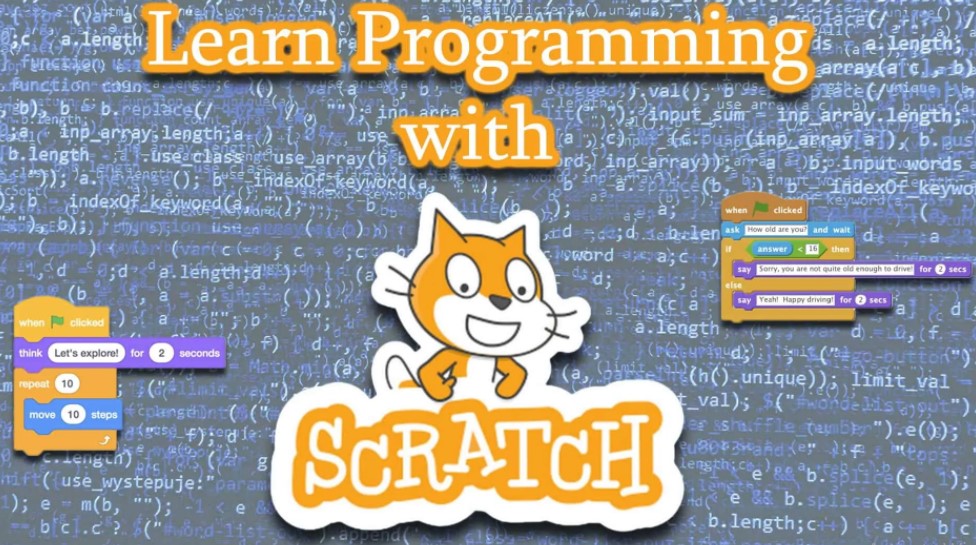
Scratch: A visual programming language designed for children, it uses colorful blocks to create animations and games.
Blockly: A visual programming language that serves as the foundation for many kid-friendly coding environments.
Tynker: Tynker offers a coding platform for kids with interactive courses and activities to introduce coding concepts.
Kodu: A game development environment for creating games using a simple visual programming language.
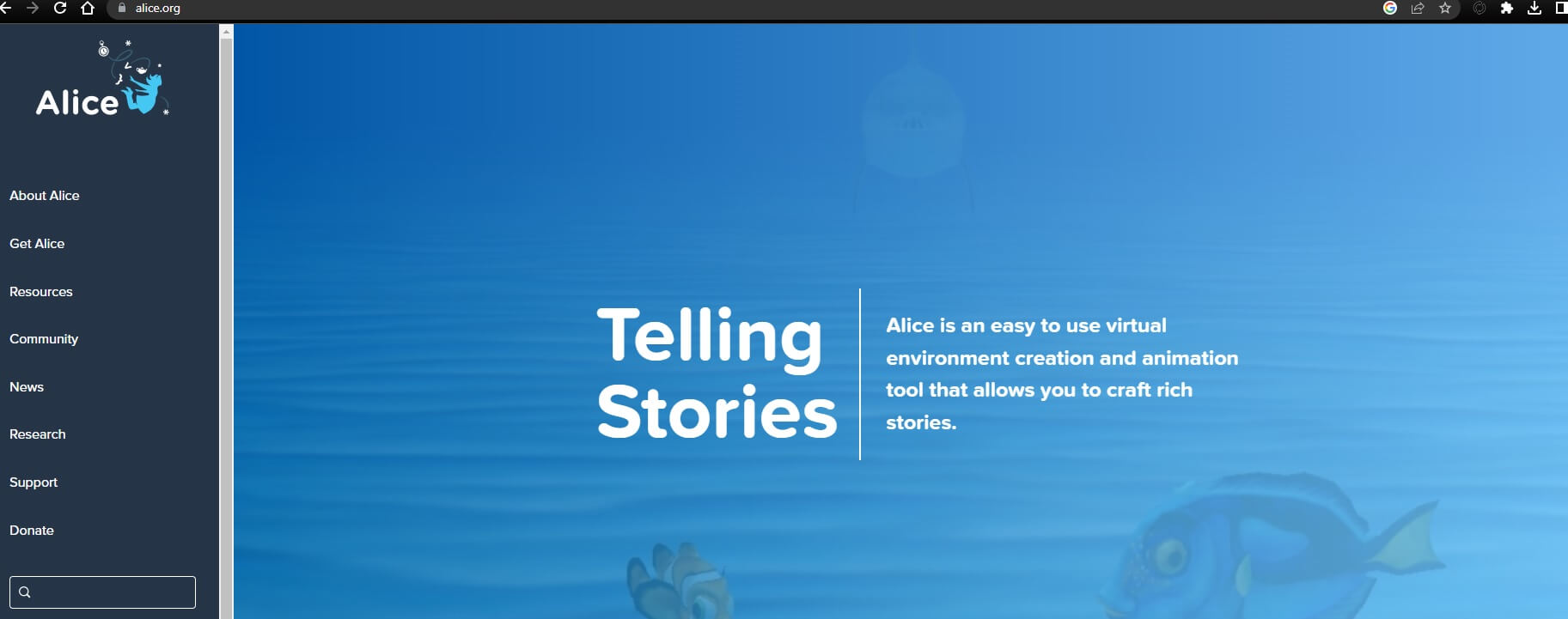
Alice: A 3D programming environment that helps children learn the basics of computer programming.
Hopscotch: An iOS app that teaches coding by creating games and animations using a visual, block-based language.
Lego Mindstorms: A robotics platform that allows kids to build and program their own robots using Lego blocks.
Minecraft Education Edition: Minecraft offers an educational version that introduces coding and computer science concepts.
Swift Playgrounds: An iPad app for teaching Swift, Apple’s programming language, through interactive challenges.
GameSalad: A game development platform that simplifies game creation and introduces coding concepts.

Python: Some child-friendly courses and resources are available for teaching Python to kids.
LightBot: A puzzle game that teaches programming logic by guiding a robot to light up tiles.
RoboMind: An educational software that introduces kids to programming by solving puzzles with a robot.
Cubetto: A coding toy that teaches programming concepts to very young children through a hands-on, tangible interface.
Swift (Playgrounds): For slightly older kids interested in iOS app development, Swift Playgrounds provides a fun and interactive way to learn Swift.
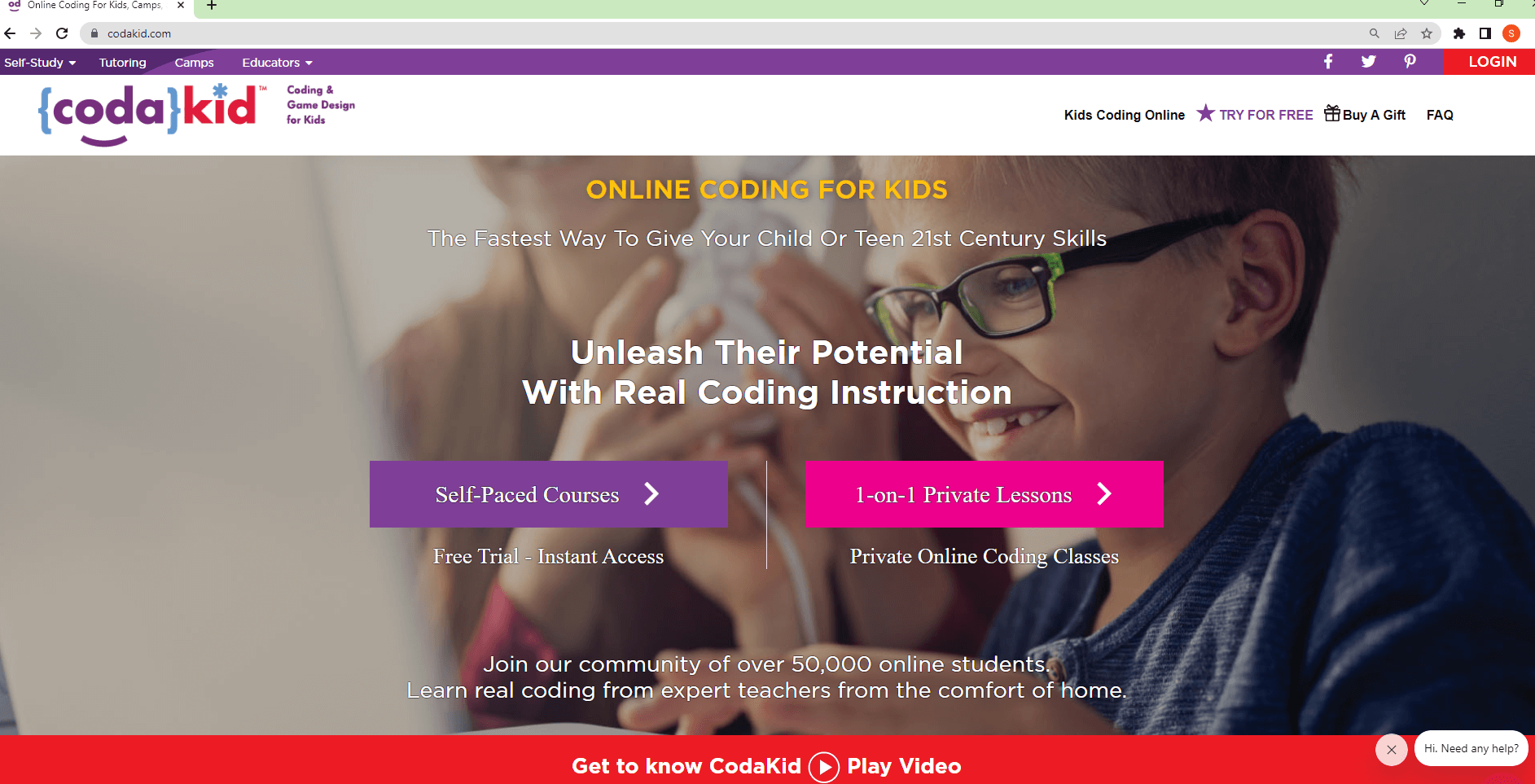
CodaKid: CodaKid offers online courses that cover a range of coding languages and concepts designed for kids.
Blockly Games: A collection of fun games and activities that teach programming concepts using the Blockly language.
These languages and platforms are specifically designed to make coding accessible and engaging for children. They help build a solid foundation in coding and problem-solving while fostering creativity and critical thinking. The choice of language or platform often depends on the child’s age and interests.
Balance Screen Time
While coding is essential, ensure your child has a healthy balance between screen time and other activities. Encourage outdoor play, reading, and social interactions.

Support Their Passion
Most importantly, be supportive. Show genuine interest in your child’s coding projects, ask questions, and provide the resources they need.
Helping your kids master computer coding is a gift that keeps on giving. It equips them with the skills and mindset necessary for success in a technology-driven future. By following these strategies, you can foster a lifelong passion for coding in your children and watch them flourish in the digital age.
Is it advisable to instruct children in coding?
Coding already underpins a substantial portion of our daily activities, and it’s foreseeable that it will have an even more significant role in the future. Consequently, coding is regarded as an increasingly valuable skill, but there may be constraints in terms of access to coding programs for youngsters, or perhaps, these opportunities aren’t fully realized.
Given these considerations, it may prove beneficial for parents to consider introducing their children to coding. This approach would, at the very least, provide an opportunity to assess whether it’s an activity their children find enjoyable or not.

Frequently Asked Questions About Teaching Kids Coding
When is the appropriate age to begin kids coding education?
Coding apps are tailored for children as young as five, utilizing gamified methods to introduce coding concepts and technical problem-solving. While this initial exposure won’t make them coding experts, it’s an excellent starting point.
Which programming language is most suitable for children to learn?
For young children and those with no prior coding experience, Scratch is an excellent choice. Scratch employs colorful command blocks, which are easier for kids to work with compared to text-based coding. Older students can explore languages like HTML, CSS, JavaScript, and Python.
Are there free resources available for teaching kids to code?
Yes, there are. Scratch and ScratchJr, popular tools for initiating kids into coding, are both accessible for free. Additionally, the nonprofit organization Code.org offers numerous free coding resources.
How can I begin teaching coding to my children?
Demonstrating to your child that coding can be enjoyable is a great way to pique their interest. Coding enables kids to unleash their creativity in new ways, aligning with their natural inclinations. Whether it involves constructing imaginative worlds or solving coding challenges within games, the key is to find engaging activities that resonate with your child.
We hope that you enjoyed our article Best Ways to Teach Kids Computer Coding. If you feel that we missed anything please leave comments below!







